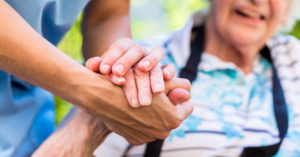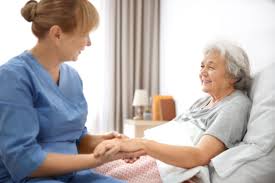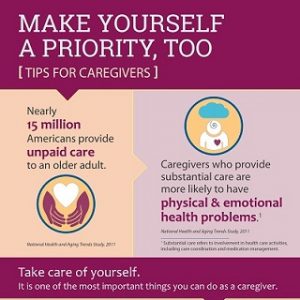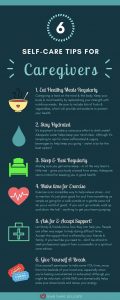The most important person in a hospice patient’s life is their caregiver! The caregiver is the special person in the home with the patient day in and out. They tend to every need the patient has, runs necessary errands, experiences the emotional roller coaster that comes from watching a terminal illness progress, and so much more.

Caregivers usually spend so much time caring for their loved one that their own well-being can take a turn. According to the CDC, “79.3% of caregivers aged 45 years and older reported having had a routine checkup in the past year.” Roughly 80% of women had a routine check-up vs. approximately 77% of men, reported from the same study. Also, around 14.5% of caregivers reported having 14 or more mentally unhealthy days in a month. 17.6% of caregivers reported experiencing 14 or more physically unhealthy days in a month. In addition to the mentally and physically unhealthy days, 36.7% of caregivers reported getting insufficient sleep (<7 hours within a 24-hour period).
Hospice and Caregiving
When enrolling a loved one in hospice care, most caregivers think hospice takes over all of their duties and we kick the caregiver aside. This couldn’t be farther from the truth! St. Anthony’s Hospice works in partnership with the caregiver! We know how important it is to have someone in the home providing that constant care and how important it is to be involved in your loved one’s care. St. Anthony’s comes in as extra help and support and to be the expert pain and symptom management. We educate the caregivers on medication, wound dressing, the disease process, the dying process, and much more.

Also, while in St. Anthony’s Hospice care, we have options to give caregivers breaks while the patient still receives the expert symptom management that hospice provides. At the Lucy Smith King Care Center, the patient can transfer for respite care. Respite care is covered 100% under Medicare, Medicaid, and some private insurances! The patient can stay for up to 5 days while the caregiver gets a break to attend a wedding, graduation, vacation, staycation, whatever the event is, and receive the expert 24/7 care that our clinicians provide. For more information on the Lucy Smith King Care Center, check out the webpage about it here- https://stanthonyshospice.org/lucy-smith-king-care-center/.
We work in partnership with the patient’s physician and patient’s caregiver to provide the best care to the patient! If you or a loved one is needing the extra help that St. Anthony’s Hospice can provide, give us a call at (270) 826-2326 or make a referral here- https://stanthonyshospice.org/referral/.
Sources: https://www.cdc.gov/aging/caregiving/caregiver-brief.html





